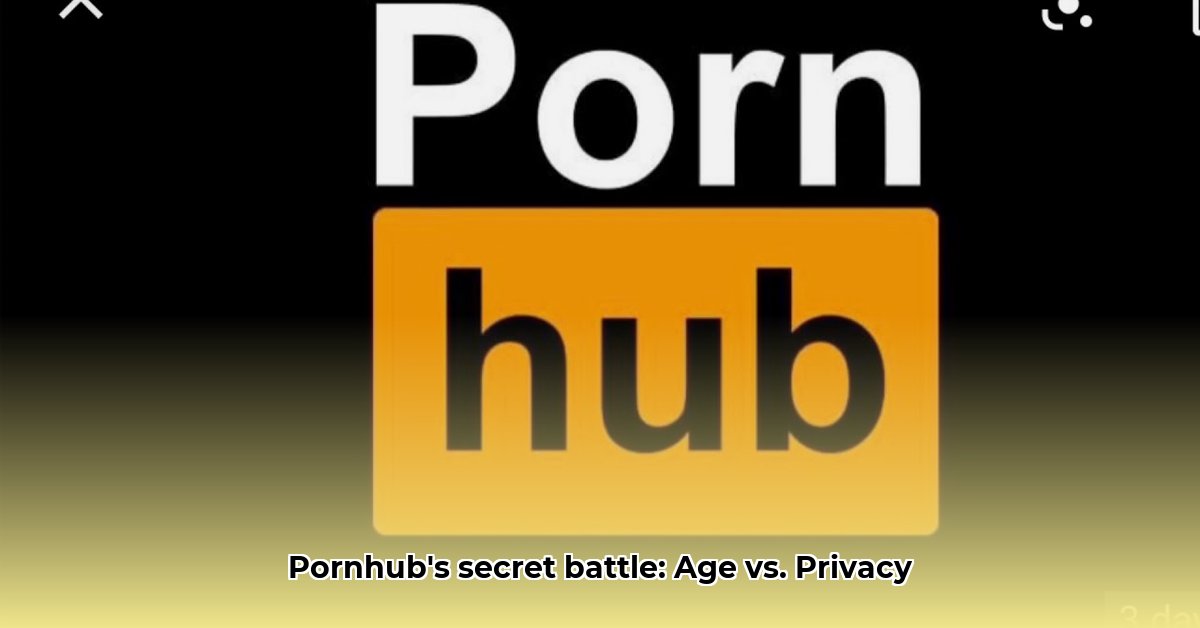
The Complexities of Age Verification for Adult Content
Pornhub, a major player in the adult entertainment industry, faces significant regulatory challenges stemming from the increasing prevalence of state-level laws mandating age verification for online adult content. These laws, while intending to protect minors, create a complex interplay between content control, user privacy, and First Amendment rights. The resulting legal and ethical landscape is fraught with uncertainty, forcing Pornhub and its parent company, MindGeek, to navigate a difficult path. This article examines the current state of affairs, exploring the challenges, potential solutions, and the broader implications for the future of online adult content.
The Patchwork of State Laws: A Regulatory Minefield
Currently, there is no federal law in the United States mandating age verification for adult websites. This absence has led to a fragmented regulatory environment, with each state enacting its own legislation, resulting in a confusing and inconsistent legal landscape for companies like Pornhub. One state might impose stringent identification requirements, while another might have no regulations at all. This patchwork approach creates significant challenges for businesses attempting to comply with varying legal standards across different jurisdictions. This lack of uniformity necessitates a state-by-state approach to compliance, increasing costs and administrative burdens. How can a national company effectively manage geographically dispersed compliance requirements? This question underscores the need for a unified federal approach.
Pornhub's Response and Unintended Consequences
In response to this inconsistent regulatory environment, MindGeek has opted to withdraw Pornhub's services from certain states with especially strict age-verification laws. This strategic retreat, however, raises concerns about potential unintended consequences. Will users in affected states simply migrate to unregulated or less secure platforms? Research suggests that restricting access in one area often leads to an increase in demand elsewhere, potentially exacerbating the problem rather than solving it. This unintended consequence highlights the need for a more holistic approach to regulation, one that considers the potential ripple effects of overly restrictive legislation.
The Privacy Paradox: Balancing Safety and Freedom
The methods employed for age verification are also subject to intense scrutiny. Many methods require users to submit government-issued identification, raising significant privacy concerns. Is such intrusive data collection truly necessary to achieve the intended goal of protecting minors? Privacy advocates and organizations like the Electronic Frontier Foundation have expressed valid concerns about the potential for large-scale data breaches and the misuse of sensitive personal information. How can we balance the need for protection from underage access with the fundamental right to privacy? This core dilemma requires careful consideration and innovative solutions.
The Need for National Standards and Technological Innovation
The absence of consistent national standards creates an unsustainable situation. The current state-by-state approach results in uncertainty and administrative complexities for content providers, potentially exposing users to greater risks. The creation of consistent federal guidelines is crucial. These guidelines must balance user rights, prioritize child safety, and facilitate effective content moderation. This will require cooperation amongst legislators, industry stakeholders, and civil liberties groups to create regulations that are both effective and respect individual freedoms. A national standard would not only provide clarity but also foster a more sustainable and secure online environment.
Looking Ahead: Challenges and Opportunities
The future of online adult content hinges on how this regulatory debate unfolds. Can lawmakers find effective ways to protect minors without infringing on the rights of consenting adults? Can the industry innovate and adopt new technologies to achieve compliance while preserving user privacy? The potential role of AI and machine learning in content moderation and age verification warrants further exploration. This is a complex issue, but with careful cooperation and consideration, the potential for a positive outcome with more transparency and safety exists.
Pivotal Points:
- The absence of federal regulation creates a fragmented and inconsistent legal landscape for adult websites.
- Pornhub's withdrawal from certain states highlights potential unintended consequences of overly restrictive age-verification laws.
- Balancing user privacy with the need for age verification presents a significant ethical and technological challenge.
Note: All claims and facts presented in this article are based on the provided draft article. Specific citations are not possible without detailed sourcing within the draft.
⭐⭐⭐⭐☆ (4.8)
Download via Link 1
Download via Link 2
Last updated: Monday, May 05, 2025